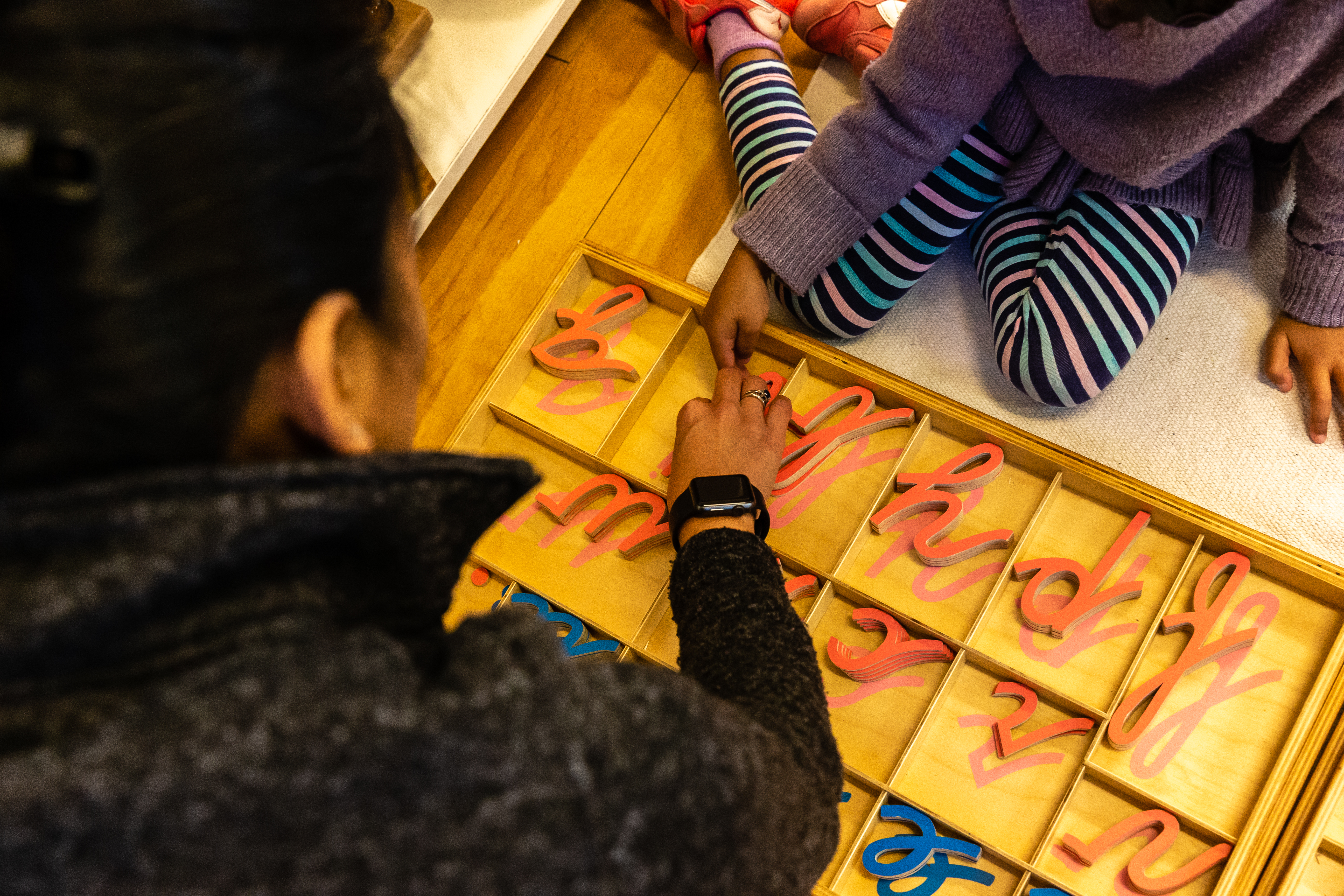(858) 759-0631
Modern Parenting Is Overwhelming, Expensive and Perhaps Self-Defeating. How We Parents Can Manage the Demands via The Montessori Method
Over the past 60 years, parenting has become far more intensive. From a decidedly ‘hands off’ approach during the 1960s and 70s, today’s parents are spending far more time, money and attention on raising children--and far less on themselves.
Whereas kids enjoyed unguided and imaginative free play, today’s working mothers are spending as much time taking care of their children as stay-at-home moms did then.
The result: too much structure and too much stress.
During the past several decades, child development experts have determined that the First Five years are the most important years to mold children via more of a ‘hands-on’ approach.
As a result, parents have dedicated endless hours to reading, crafts, lessons, games and homework—with mom (and more-than-ever) dad at the helm.
The upshot: parents’ leisure time and pocketbooks have suffered. Why?
How about endless after-school activities like:
-
Directed after school care
-
Instrumental tutoring
-
Seasonal sports practices and,
-
Dancing lessons that consume huge amounts of time, effort and money?
A Core Problem: Money is Tight, Kids are Expensive
At the core of all this intensive parenting and its demands is a hard economic fact:
economic anxiety.
Perhaps this is one reason why Millennials are not getting married, having children or purchasing big ticket items like cars and houses. Instead, they are buying pets and ‘experiencing’ the world around them. Thus, while they experience, they employ dog sitters, Uber, nightly apartment rentals and an overall view that getting to the top is hard enough without kids. After all, dogs don’t attend college.
In other words, the last generation of overly directed school kids experience a difficult time with independence.
Is this an outgrowth of endless hands-on parenting?
How to Cut Extra-Curricular Costs
One way to cut your child’s costs and your economic anxiety is to stop all the private lessons. How about municipal sports leagues rather than travel teams? Or, school band rather than one-on-one tutoring? Or, even neighborhood play with minimal supervision?
Ninety-nine percent of our children will never play professional sports, play first violin in the orchestra or graduate from the Ivy League. However, one-third will graduate with a college degree. With that overriding concept in mind, does it not make sense—unless you’re rich, your child is a prodigy, a top performer or an academic titan—to drop the ‘prestige’ from your budget?
Can’t we let kids be kids—unsupervised, unmonitored—and let them use their imaginations rather than us to grow? Wouldn’t it be great if we changed our neighborhood’s focus from individual child rearing to group child rearing and adopted free-range parenting?
A Change in Focus?
Every day in Southern California, parents are working overtime to pay for all these extras.
That means we are working harder to earn money we spend over-directing and over-focusing our children. And, it means that informal parental groups suffer because parents are racing about being intensive taskmasters with heavily-scheduled children in tow.
All this over-activity is stressful for kids. It gives them anxieties. It makes them act out. It makes them overly dependent on their parents. It’s counterintuitive and creating new problems.
The Montessori Method Difference
At Lifetime Montessori School (LMS) in Santaluz, we’ve built a massive, imaginative playground with various terrain, tunnels, and trees. This allows our students to build social skills, emotional maturity and leadership skills—without our hovering.
Our jobs as educators are based on doing what’s right for the child. As we see stressed-out parents every morning, we see stressed-out kids who are engaged from 8:00 AM to 6:00 PM.
Today, Lifetime Montessori has a dedicated Resource and Inclusiveness Coordinator to monitor children who are engaging in atypical behaviors. We think our kids are asking us in their own way to unplug.
The Lifetime Montessori Difference is this: let us lovingly guide your children at school and you manage them the same way at home. As a result, your kids will get a consistent, continuous wave of independence, empathy, self-sufficiency, peer status and lifelong love of learning that you can capitalize with them at home.
And cut your dojo bill to zero.

